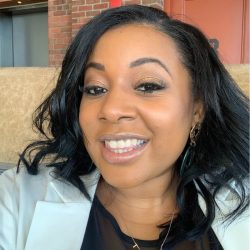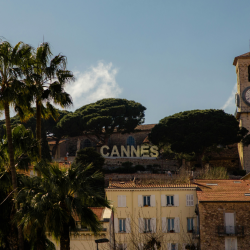MeToo as a social movement and awareness campaign first began in 2006, with the hashtag being used in 2017 to draw attention to the size of the problem. This is arguably when MeToo as a movement went viral, and had an impact on many parts of life and business and many types of industries, including media and marketing. At one point #MeToo trended in at least 85 countries. Seven years on, and to mark International Women’s Day 2024, we decided to ask women in our network how they see things.
Kate Gleysteen — Director of Media at PDC Brands
The marketing world was once free rein for bad players, including women who allowed certain behaviours to occur. Inappropriate behaviour has plummeted as tolerance levels shifted with the #MeToo conversation and what was brought to light. For an industry responsible for observing and unpacking culture, it’s hard to ignore and to not embrace the movements in the zeitgeist since #MeToo: ‘hot girl’, the ‘bad bitch’ anthems, ‘girl boss’ evolution, and the rise of the Bimbo. However, the more ‘subtle’ issues of inclusivity persist; women are not represented in senior leadership, as motherhood and age discrimination persist due to prejudice and lack of policies. The shift that has felt most visceral is women supporting women. The #HypeWomen movement is permeating the industry, combating the scarcity mindset, and encouraging a culture of unabashed female empowerment. The newest wave of sisterhood fosters women’s ability to rise, allows our voices to be heard, and celebrates one another’s accomplishments. While things have changed for the better since #MeToo, we still have a long way to go.
Charlotte Mair — Founder and MD at The Fitting Room
I don’t think things have massively changed, as with any movement there’s that initial drive for change and then often things get back to ‘normal’ very quickly. One thing that I think has changed, is that women in marketing have started to ask for their worth more. With the rise of personal branding, I can definitely see and feel more women in the industry having a voice on platforms like LinkedIn, showcasing their expertise and calling out the BS and inequality. The next generation of women marketers are also more vocal about how they are navigating through the landscape. With the exodus and shorter tenure of CMOs across the board, we’re also seeing more female-led indies popping up, and a lot more open conversations about the challenges for women returning to the industry after maternity leave.
Sinead Lambe — Associate Director, Communications at Imagen Insights
Having recently attended Tate Britain’s ‘Women in Revolt!’ exhibition I realised just how far we really have progressed since advertising and marketing in the ’80s and ’90s. While, back then, women were objectified and beauty standards were outrageously patriarchal (as was the norm), in recent years there has been a vitally positive shift. Representation is improving, and the voices of the under-estimated are finally being heard. I’m optimistic for the future, but there’s still a lot to be done to ensure women of all backgrounds are truly celebrated and respected in marketing, and specifically advertising.
Kate Knowles — freelance strategist
MeToo was obviously a landmark moment for calling out oppressive, domineering and abusive behaviour, especially in media. It certainly definitely gave women a voice to call out bad behaviour. But much of the insidious sexism still lingers underground, because it’s built into the fabric of how we work as an industry. Nepotism and network; inflexible hours and overtime; open ageism in the quest for youth relevance… all these things make it hard for women to break into (and stay in) marketing. You see it in the makeup of those at the top, its still overwhelming male and overwhelmingly white. There may be less open sexist vitriol, but I wouldn’t say marketing is a comfortable home for women yet.
Jemima Monies — COO at McCann London
#MeToo ignited a necessary conversation about power imbalances and harassment in our industry, exposing a long-standing culture of silence. It’s undeniably led to a positive shift — stronger HR policies, less tolerance and a growing sense of accountability. Organisations like WACL are leading the charge. Their #timeTo campaign goes beyond simply ending harassment — it is fostering an environment where women feel more confident to speak up. It’s a long road, but with initiatives like these the marketing landscape is becoming a more just and supportive space for women.
Featured image: Antoni Shkraba / Pexels































